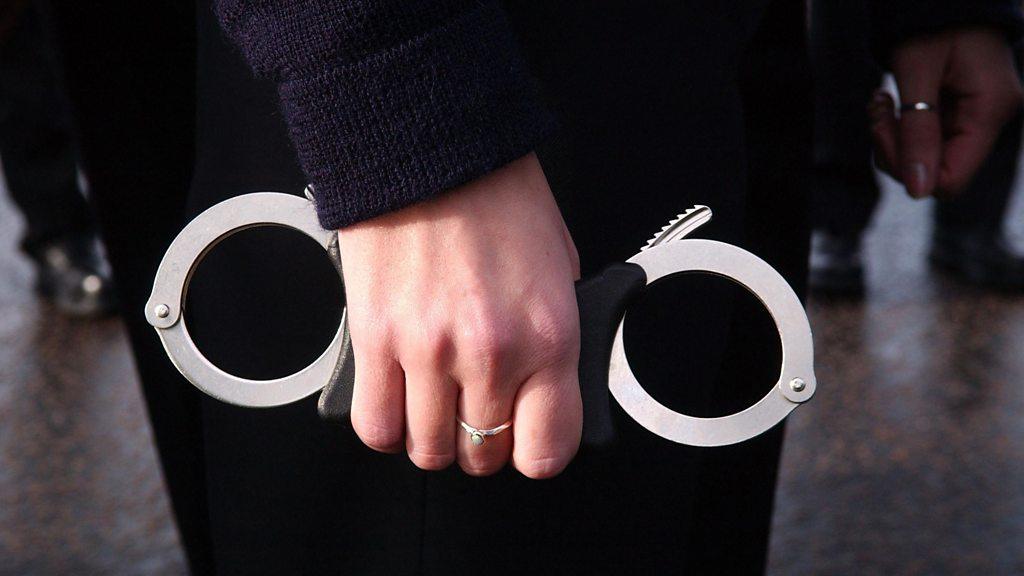Humberside Police officers to trial 'spit hoods' in Hull
- Published
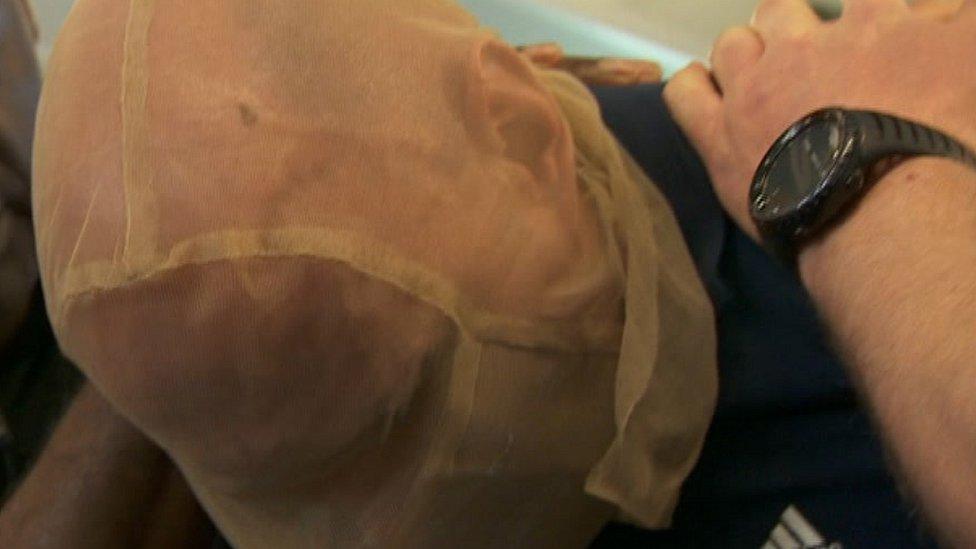
Police will be able to use the measures in Hull for an initial three months
"Spit hoods" are to be trialled in Hull to prevent suspects spitting and biting police officers.
The guards, made from mesh fabric, will be piloted in the city by Humberside Police from Monday.
During the pilot, which lasts three months, hoods will be given to officers who wear body cameras and police custody suite staff.
In November, a BBC freedom of information request found they were in use by 17 of the 49 UK police forces.
An independent scrutiny panel will monitor each use in Hull, with a review carried out to decide whether to roll out the protective measure across Humberside Police's area.
Campaign group Liberty previously described the guards as "a primitive, cruel and degrading tool", but the Police Federation said they "should be available as standard".
Humberside Police said they would only be used in rare circumstances.

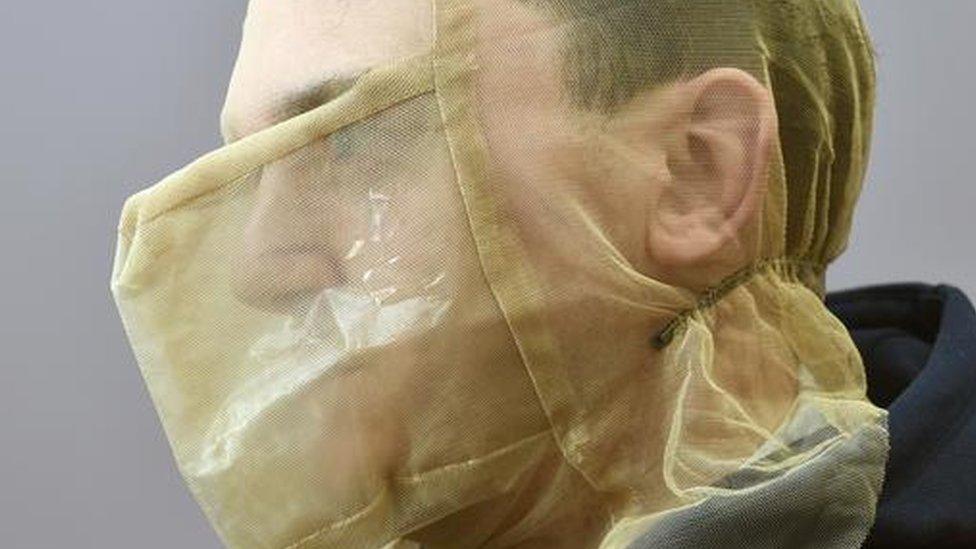
What are spit guards/hoods?
Mesh fabric hoods placed over the heads of suspects to prevent spitting or biting.
They can only be used once and are usually used in custody suites or when moving people in custody from one location to another.
Critics say spit hoods are distressing, humiliating and can cause panic.
Forces say they only use the hoods when "proportionate, appropriate and justifiable" to protect their officers.

Ch Insp Paul Butler, of Humberside Police, said: "About a quarter of all assaults on police officers are a result of being spat at or bitten, clearly we need to protect them where we can.
"We've got a really simple and effective piece of equipment here that does just that."
Katie Kempen, from the Independent Custody Visiting Association, said she understood police required "all relevant protection" but more research was needed.
"We're concerned about the use of spit hoods, particularly with the lack of national policy and training, the impact on vulnerable detainees and the need for full consultation before they're used," she said.
- Published20 February 2017
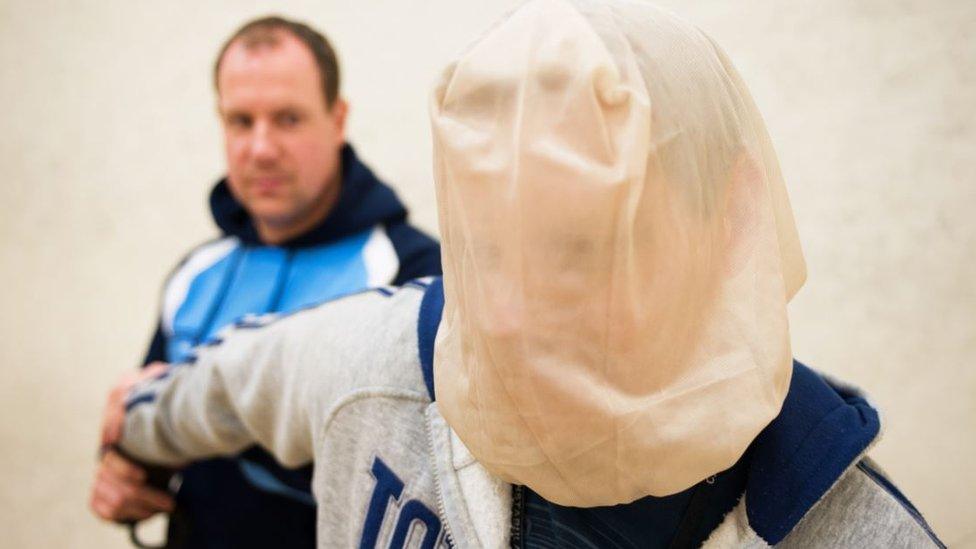
- Published8 February 2017

- Published6 September 2016
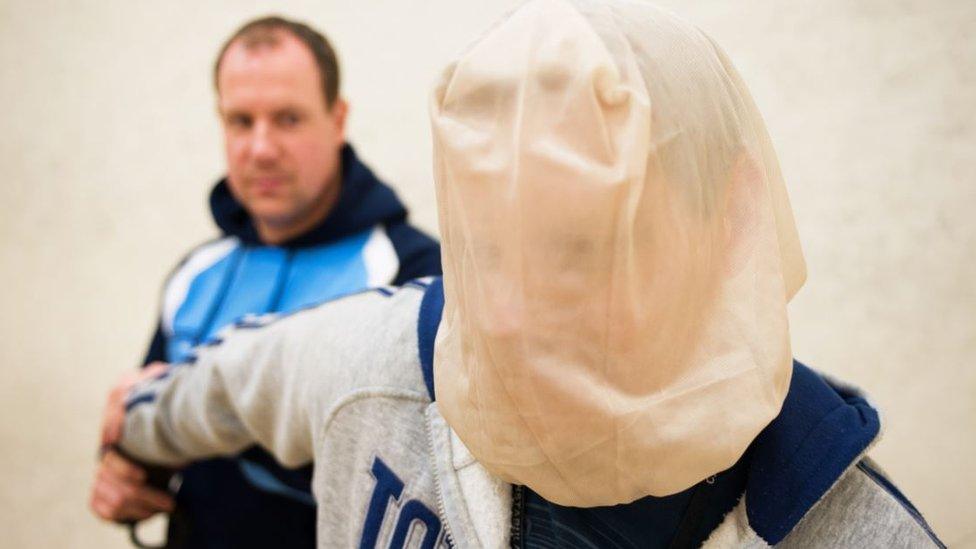
- Published8 June 2016
